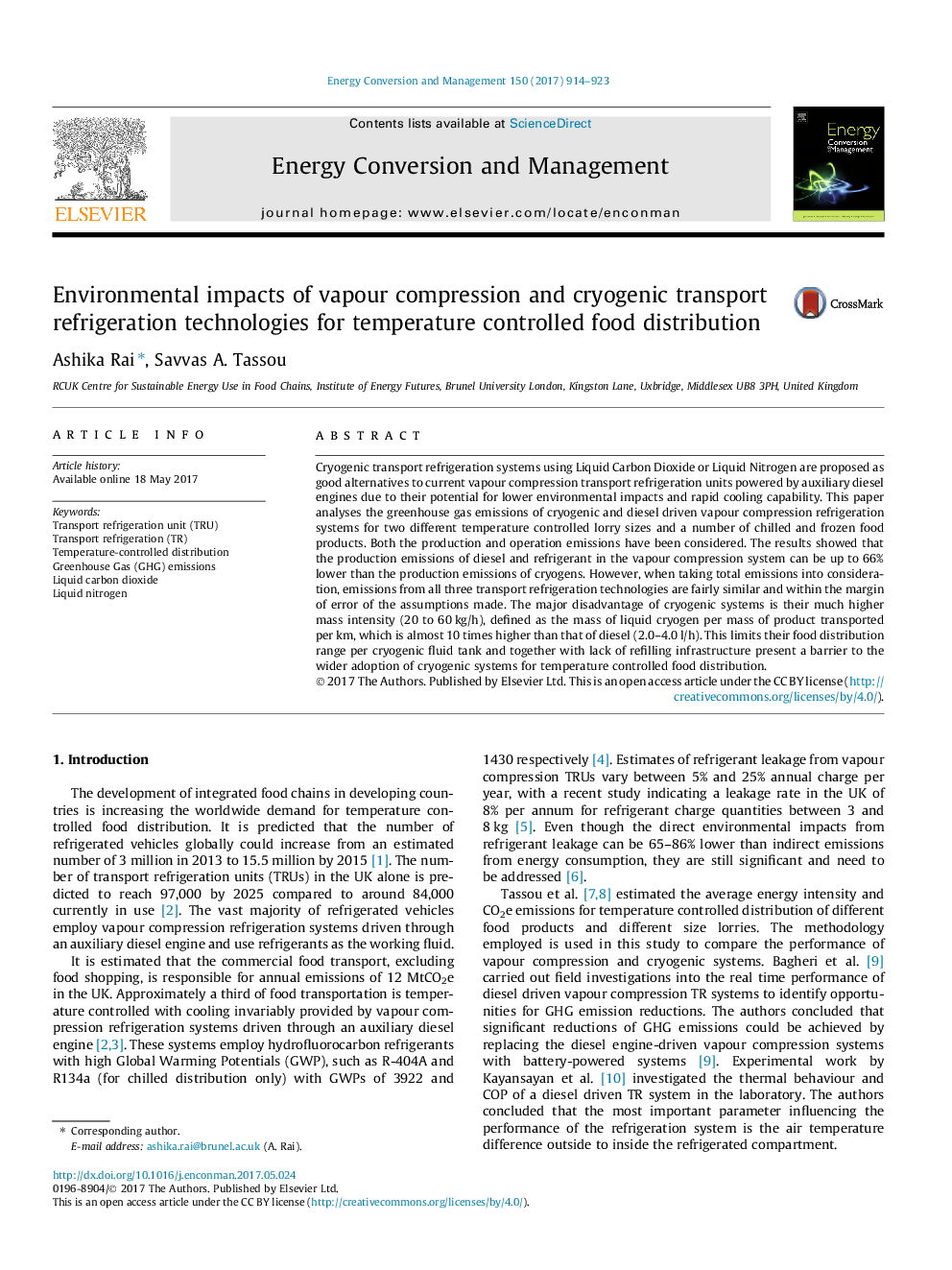| Article ID | Journal | Published Year | Pages | File Type |
|---|---|---|---|---|
| 5012296 | Energy Conversion and Management | 2017 | 10 Pages |
â¢Feasibility of cryogenic transport refrigeration systems as new alternatives.â¢Fuel intensity of diesel TRUs is found to be lower than of cryogenic systems.â¢Production of cryogenic fluids can lead to significant GHG emissions.â¢Both the systems can result in similar overall environmental impacts.â¢Larger vehicles are more energy efficient for refrigerated food distribution.
Cryogenic transport refrigeration systems using Liquid Carbon Dioxide or Liquid Nitrogen are proposed as good alternatives to current vapour compression transport refrigeration units powered by auxiliary diesel engines due to their potential for lower environmental impacts and rapid cooling capability. This paper analyses the greenhouse gas emissions of cryogenic and diesel driven vapour compression refrigeration systems for two different temperature controlled lorry sizes and a number of chilled and frozen food products. Both the production and operation emissions have been considered. The results showed that the production emissions of diesel and refrigerant in the vapour compression system can be up to 66% lower than the production emissions of cryogens. However, when taking total emissions into consideration, emissions from all three transport refrigeration technologies are fairly similar and within the margin of error of the assumptions made. The major disadvantage of cryogenic systems is their much higher mass intensity (20 to 60Â kg/h), defined as the mass of liquid cryogen per mass of product transported per km, which is almost 10 times higher than that of diesel (2.0-4.0 l/h). This limits their food distribution range per cryogenic fluid tank and together with lack of refilling infrastructure present a barrier to the wider adoption of cryogenic systems for temperature controlled food distribution.
Graphical abstractDownload high-res image (142KB)Download full-size image
